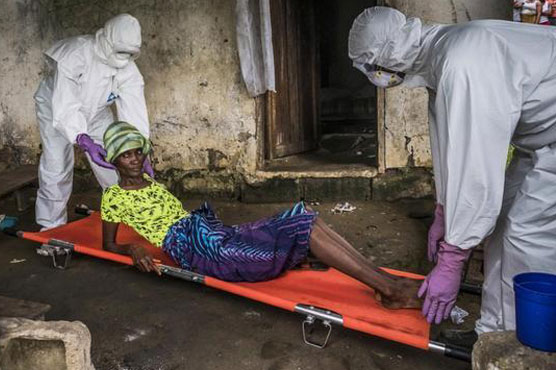House searches for Ebola in Sierra Leone capital

President imposes new restrictions on movement and gatherings in bid to stop disease's spread.
FREETOWN (AP) Ebola surveillance teams are fanning out in Sierra Leone s capital to search every house for sick people, as the president imposes new restrictions on movement and gatherings in a bid to stop the disease s spread.
President Ernest Bai Koroma launched the 14-day "Operation Western Area Surge" on Wednesday in a national broadcast, promising that treatment beds, labs and ambulances are ready to handle any new cases. He reiterated that Christmas and New Year s celebrations are canceled this year and ordered Christians to return directly home after church services on Christmas Day. He also banned all public gatherings during the holiday period and movement between districts at a time when many people travel to visit family.
"I know that this is the festive season where Sierra Leoneans often celebrate with families in a flamboyant and joyous manner, but all must be reminded that our country is at war with a vicious enemy," he said.
Sierra Leone has repeatedly quarantined neighborhoods or whole districts and once locked down the entire country for three days to ferret out people hiding the sick. There was no order Wednesday for people to stay in their homes. Instead, Koroma said teams would visit every house, and he encouraged traditional and religious leaders, politicians and women s and youth groups to talk to people in their communities about Ebola and encourage them to seek treatment.
In recent weeks, Koroma has repeatedly implored people to avoid behavior that spreads Ebola like touching the sick or dead. But infections have continued at a rapid rate in the Western Area, which includes Freetown and its surroundings. More than half of new infections are now being recorded in the Western Area.
By contrast, infection rates have begun to stabilize or decline in neighboring Guinea and Liberia, the other two countries hit hard by Ebola. In all, the disease has sickened around 18,500 people, killing more than 6,800.


